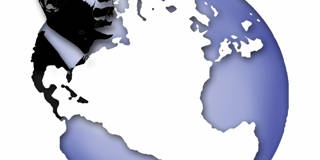 Chris Van Es
Chris Van Es
本拉登时代之后的美国
牛津——
一个国家的各方面实力具有压倒性的优势时,人们就称之为霸权。今天许多专家认为其他国家的崛起以及美国在中东战争中蒙受的损失削弱了“美国霸权”。但这个词的意思非常模糊。首先,某国具有实力不能说明任何事情都可以因此顺遂人意。即使是最近本拉登死于美国特种兵之手这件事也不能证明美国的实力强弱与否。
以二战之后的美国为例。当时,美国生产总值占世界三分之一,核武器方面也有压倒性的优势。因此,许多人认为美国是世界霸主。然而,即使是美国也无法避免在中国的“损失”,西欧共产主义的重现,以及阻止朝鲜战场上的僵局,或铲除古巴卡斯特罗政权。
https://prosyn.org/IBuUZplzh
To continue reading, register now. It’s free!
Register Now
Already have an account?
Log in
牛津——
一个国家的各方面实力具有压倒性的优势时,人们就称之为霸权。今天许多专家认为其他国家的崛起以及美国在中东战争中蒙受的损失削弱了“美国霸权”。但这个词的意思非常模糊。首先,某国具有实力不能说明任何事情都可以因此顺遂人意。即使是最近本拉登死于美国特种兵之手这件事也不能证明美国的实力强弱与否。
以二战之后的美国为例。当时,美国生产总值占世界三分之一,核武器方面也有压倒性的优势。因此,许多人认为美国是世界霸主。然而,即使是美国也无法避免在中国的“损失”,西欧共产主义的重现,以及阻止朝鲜战场上的僵局,或铲除古巴卡斯特罗政权。